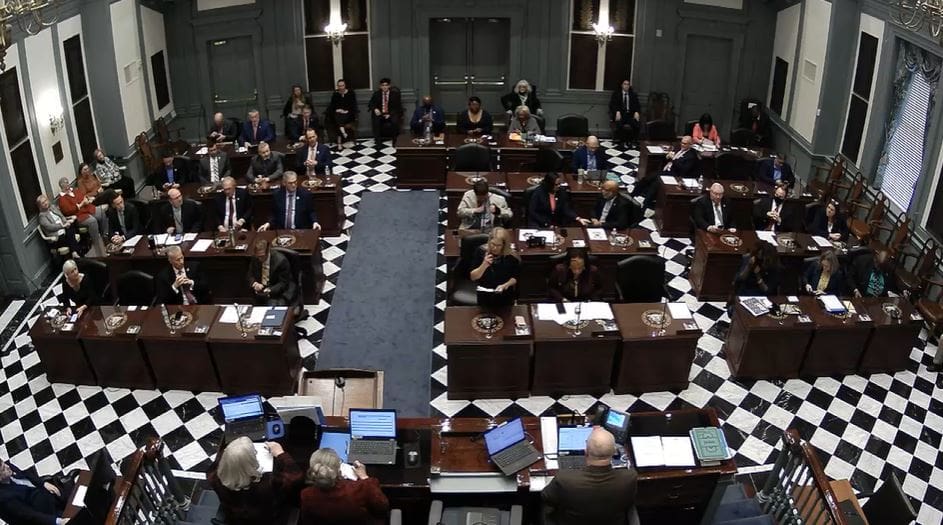
Multiple amendments have been proposed for a resolution covering rules in the Delaware House. (file photo)
When the Delaware House began meeting in January, it adopted temporary rules for operations.
House Resolution 3 governs how the House operates, from how bills are voted on to how parking spaces are allocated to each member.
House Resolution 10, which includes the permanent rules, awaits a vote by the whole House.
It received four votes on its merits from the House Rules Committee.
HR 10 would add a section governing how remote participation works, change a rule on roll call votes to account for remote participation and remove the section on emergency operation.
RELATED: Livestreaming seems set to stay
Before the resolution can be voted on by the House, it has to decide on the nine proposed amendments, six by Republicans and three by Rep. Sean Lynn, D-Dover.
Drew Volturo, deputy chief of staff for communications with the House Democratic Caucus, said there isn’t much of a difference between temporary or permanent rules, as both can be amended and tend to resemble each other.
Joseph Fulgham, director of policy and communications for the Delaware House Republican Caucus, said the Republican amendments address multiple issues.
The most impactful amendments focus on the votes needed to suspend House rules, the elimination of remote participation and when bills get voted on.
What the amendments address
An amendment proposed by Rep. Jeffrey Spiegelman, R-Townsend/Hartly, would require a three-fifths majority instead of a simple majority to suspend House rules.
Fulgham said that’s an important change. “It shouldn’t just be majority plus one,” he said.
Because it is a significant change from how a bill is ordinarily considered that it should carry more weight in a vote that you should meet a higher degree of consensus, to agree to suspend the rules. … He’s proposed it before, and it hasn’t gained any traction because simple majorities benefit the majority party. And the majority party is loath to give up any kind of numerical advantage.”
In 2019, Spiegelman proposed an amendment to House permanent rules that sought a three-fifths majority to suspend House rules. While it was sponsored by 11 other House Republicans, it didn’t receive a vote.
Fulgham said that House Republicans are also concerned that virtual participation goes against the state constitution.
Most Republicans in the House believe that we ought to observe what we believe to be the constitutional requirement that representatives and senators be physically present in the Capitol Building to conduct business,” he said.
The Delaware constitution states that “The General Assembly shall meet and sit in Dover, the capital of the State; provided, however, that in periods of emergency resulting from enemy attack, terrorism, disease, accident, or other natural or man-made disaster the General Assembly may temporarily meet and sit elsewhere.”
Since the COVID-19 pandemic began, the House has been operating under emergency procedures that allow for virtual attendance.
House Minority Whip Lyndon Yearick, R-Camden, proposed an amendment that would only allow witnesses to participate remotely.
Rep. Mike Smith, R-Pike Creek, proposed an amendment that would end remote participation.
Rep. Bryan Shupe, R-Milford, proposed an amendment that would require bills be heard by the committee it’s assigned to within 12 legislative days and be placed on the legislative agenda within three days after being reported out of committee. That amendment is also sponsored by Lynn.
Shupe is the CEO of Delaware LIVE.
Share this Post




